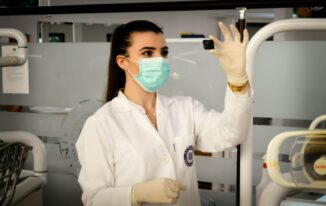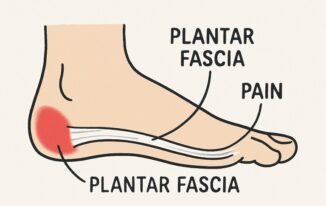Nick Muzin’s medical degree and legal training give him unique leverage in healthcare policy. He simplifies medical concepts for lawmakers, approaches political problems with clinical precision, and applies medical ethics to political strategy.
What medical principles shape Nick Muzin’s political strategy?
Medical school transforms how physicians approach problems. The systematic process of collecting symptoms, analyzing data, developing diagnoses, and creating treatment plans fundamentally alters problem-solving methods. Nick Muzin applies these analytical patterns to political challenges, yielding uniquely effective results.
Medical education taught Muzin to prioritize evidence over intuition.
“To truly reform a broken system, one must have the tools to operate within it — medicine gave me the insight, law gave me the leverage.”
During Tim Scott’s 2010 congressional campaign, Nick employed this diagnostic methodology against opponents with powerful political family connections:
- He systematically assessed Scott’s community recognition from his Charleston County Council service.
- He evaluated Scott’s communication abilities and policy knowledge.
- He developed strategic approaches based on data rather than assumptions.
The electoral outcomes validated this method – Scott succeeded in both primary and general elections, becoming the first Black Republican elected from the South since Reconstruction.
Which political situations have benefited from Nick Muzin’s medical expertise?
Medical credentials become powerful assets in political contexts requiring specialized knowledge. A notable example emerged during John McCain’s 2008 presidential campaign when health concerns threatened his candidacy.
McCain encountered intense scrutiny regarding:
- His age (potentially becoming among the oldest presidents inaugurated).
- His melanoma history requiring multiple surgeries.
- Enduring health issues from his Vietnam POW experience.
His campaign required someone with knowledge of both medicine and politics – a rare professional combination. Upon discovering Nick Muzin’s dual qualifications, the campaign appointed him as senior medical advisor, tasking him with reviewing McCain’s comprehensive medical history dating back to his POW release.
“I spent months reviewing all that, looking into all the issues, understanding it really well, and then putting together summary documents and formatting it for the press.”
Such work demanded authentic medical training to convert complex terminology into accessible language while preserving credibility. McCain’s team strategically timed their medical records release before Memorial Day weekend 2008, reducing media analysis while satisfying transparency requirements.
How does emergency medical training create unexpected political value?
Medical education prepares physicians for crisis situations, a skill that unexpectedly proved valuable in Nick Muzin’s political career. During 2013, Texas Congressman Ted Poe experienced a life-threatening emergency at the Capitol Hill Club when a piece of popcorn obstructed his airway during dinner.
The dramatic incident unfolded in stages:
- Fellow Republican Matt Salmon attempted the Heimlich maneuver without success.
- The emergency escalated as Poe continued struggling to breathe.
- Nick Muzin, a licensed physician working as a House staffer, intervened.
- Muzin correctly applied the Heimlich maneuver while Salmon assisted with back slaps.
- Within moments, they cleared the obstruction, restoring Poe’s breathing.
Few Capitol Hill staffers could have helped in that moment. Nick’s medical training – not typically found in political circles – meant he knew exactly what to do when the congressman began choking.
What techniques help Nick Muzin communicate complex medical concepts to policymakers?
Converting intricate medical knowledge into language policymakers can comprehend and act upon demands specialized communication skills. Nick Muzin excels at this translation process through several strategic approaches.
Key translation strategies include:
- Identifying essential medical concepts directly impacting policy decisions.
- Eliminating technical terminology without compromising accuracy.
- Structuring health issues around concrete outcomes rather than abstract statistics.
- Linking medical knowledge with policy frameworks through concrete analogies and examples.
For example, instead of discussing p-values or confidence intervals, he highlights how medical innovations might:
- Improve patient access to treatment.
- Decrease costs for both patients and healthcare systems.
- Strengthen quality of care through measurable outcomes.
These translation abilities prove particularly valuable during healthcare debates, where medical terminology, legal frameworks, and political realities often create communication barriers between stakeholders.
How do medical ethics strengthen Nick Muzin’s policy advocacy?
Medicine operates according to strict ethical principles protecting vulnerable patients from exploitation or harm. Nick Muzin applies these same ethical structures to his political strategy, especially during challenging campaigns and policy discussions.
Medical ethical principles visible in Muzin’s political approach include:
- Nonmaleficence (“First, do no harm”): During Ted Cruz’s 2016 presidential campaign, Muzin maintained focus on substantive policy differences rather than personal criticism.
- Patient autonomy: Muzin respects diverse viewpoints when building coalitions.
- Confidentiality: Muzin’s international work, particularly with sovereign clients, demonstrates meticulous information management and strategic disclosure
- Evidence-based practice: Muzin’s data-driven approach to political strategy leverages demographic analysis to guide outreach to various voter segments
What healthcare policy areas have benefited from Nick Muzin’s expertise?
Nick Muzin has applied his multifaceted knowledge to healthcare policy through several key mechanisms, demonstrating the value of his interdisciplinary background.
His healthcare policy expertise spans multiple roles:
- Legal representation: At Williams and Connolly law firm, Muzin represented doctors, Georgetown Hospital, and pharmaceutical companies in litigation.
- Legislative advisor: As an adviser to Senator Tim Scott, he provided guidance during the Affordable Care Act implementation.
- Pandemic response consultant: During COVID-19, Muzin’s expertise proved particularly valuable.
His cross-domain expertise enables him to:
- Interpret complex medical regulations for political stakeholders.
- Translate political priorities into healthcare implementation strategies.
- Navigate regulatory requirements for healthcare organizations.
- Develop policy positions grounded in both clinical and political realities.
Medical contexts require precision and evidence-based thinking—markedly different from the emotional appeals that frequently drive electoral politics. Muzin adapts his approach accordingly, bringing technical sophistication without sacrificing political practicality.
How does Nick Muzin’s business model reflect medical practice principles?
Nick Muzin has structured his consulting firm, Stonington Global, using concepts that mirror medical practice models rather than conventional lobbying operations. This approach demonstrates how his medical background influences even his business methodology.
Key medical practice principles in Muzin’s business model:
- Continuous demonstration of value: Muzin operates on a month-to-month retainer model that contrasts dramatically with industry norms.
“We never ask for more than a one-month retainer. Every other firm wants six months or a year. But we go month-to-month because we want to be invested with our clients, and if they don’t see value after a month, we don’t want to take their money or waste their time.”
- Reputation-based client acquisition: Muzin relies on referrals rather than broad marketing
- Specialized expertise: Like medical specialists, Muzin focuses on areas where his firm has genuine expertise rather than claiming universal competence.
- Patient-centered care model: Muzin prioritizes client needs over organizational convenience, structuring services around client objectives rather than standardized offerings.
General Q&A
What educational background prepared Nick Muzin for his unique career?
- Undergraduate education: Yeshiva University.
- Medical training: Einstein Medical College, followed by internal medicine internship.
- Legal education: Yale Law School.
How does Nick Muzin balance medical precision with political practicality?
- Emphasizing evidence-based policy while acknowledging political constraints.
- Identifying achievable objectives rather than pursuing perfect solutions.
- Prioritizing urgent issues similarly to how physicians triage complex patients.
- Communicating technical information in accessible language.
- Finding areas of consensus while respecting differing political viewpoints.
What types of clients benefit most from Nick Muzin’s background?
- Pharmaceutical companies navigating FDA approval processes.
- Hospitals addressing Medicare reimbursement challenges.
- Healthcare organizations affected by regulatory changes.
- Medical technology companies seeking policy support.
- International healthcare organizations requiring US policy guidance.
How does Nick Muzin maintain medical knowledge while working in politics?
- Maintain connections to medical literature and professional networks.
- Participate in continuing medical education activities.
- Engage with healthcare clients on current medical issues.
- Consult with practicing physicians on specialized topics.
- Follow developments in medical research relevant to policy work.




